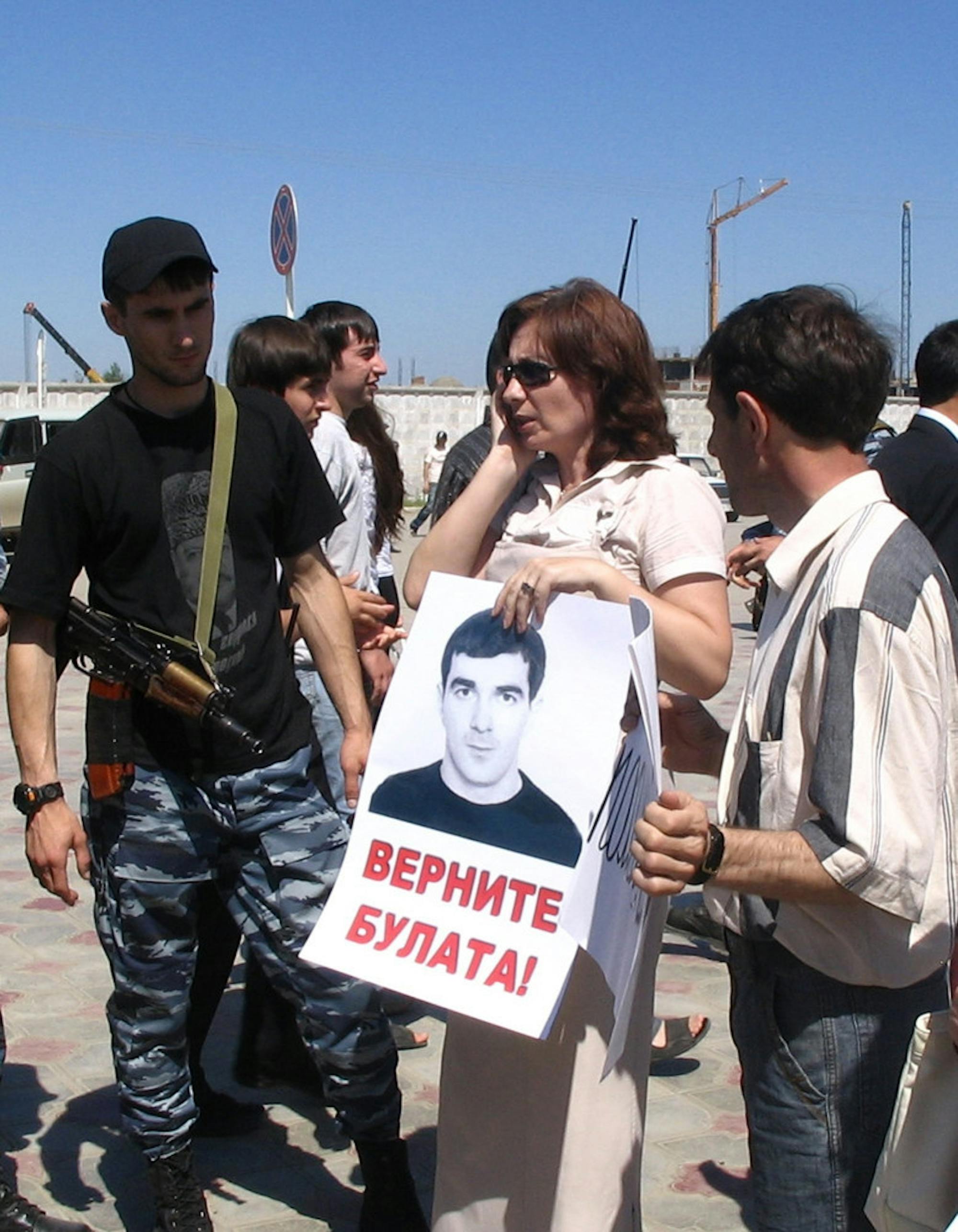The Russian region of Chechnya has a volatile history, and while President Ramzan Kadyrov has brought stability to the region, he has failed to promote human rights. In the past few years, attention has turned to the restrictions placed on women requiring them to wear Muslim dress in public.
Such controls have increased since President Kadyrov passed a law in 2007 that kept bareheaded women from entering state buildings. In 2009 and 2010, more places were added to this list, and women who go in public without a burka have been brutally attacked and harassed. For the most part, there is no law governing such dress, but it has become an unspoken, or in this case, highly vocal, social norm.
Both the restrictions and the attacks bring up questions about women’s rights in Chechnya. “The enforcement of a compulsory Islamic dress code on women in Chechnya violates their rights to private life, personal autonomy, freedom of expression, and freedom of religion, thought, and conscience. It is also a form of gender-based discrimination prohibited under international treaties to which Russia is a party,” says the Human Rights Watch.
The nature of the restrictions is a secondary concern to where the authorization of the laws stems from. These de facto restrictions and attacks on women come at the endorsement of President Kadyrov. Even more troubling, Kadyrov has gone so far as to praise the attackers that assault women for dressing outside of Muslim tradition in public.
“When a public official like Ramzan Kadyrov praises this cruel violence, he is openly encouraging physical assault and public humiliation of women. It’s time the federal government stood up for the rights of Chechen women,” says Human Rights Watch Russia researcher Tanya Lokshina.
The support gets worse. Because Chechnya is a region within Russia’s influence, the Kremlin has been blamed for perpetuating these violations. Without the support of Kadryov, Russia would have to contend with an unstable region in its southern territory. As a result, the Kremlin does nothing to improve women’s rights, and instead continues to back the Chechen government. This support means Kadyrov is under no pressure to lessen restrictions or ensure women’s safety.
But even more shocking than the rules on women’s dress that survive with government support are the aggressive ways in which these traditions are being enforced. As part of the “virtue campaign,” women not wearing headscarves began to be attacked in public places in 2010. Armed with paintball guns and threats, men try to intimidate women into wearing headscarves. Such attacks escalated when Natalya Estemirova, a Russian rights activist who spoke against the dress campaign, was found dead in Ingushetia.
Kadyrov actively supported the attackers, saying that “even if it was done with my permission, I wouldn’t be ashamed. It turns out that the girls who were sprayed with paint had been warned several times previously. After such an incident, a girl should just disappear from the face of the earth, lock herself in the house and not go out because she behaved so inappropriately that such a thing happened to her.” The President’s words show the large extent of the institutional problem and violation of human rights in Chechnya.
Overall, Kadyrov may have brought security to Chechnya, but he has failed to grow human rights, and women remain disproportionally affected. If women’s rights are to improve in the region, it is crucial for women to be able to dress as they like without facing physical danger. President Kadyrov and the Kremlin must cease support for such a virtue campaign in order to grow the region.
Chechen government fails in women’s rights

Pictured in this undated file image is journalist and staff member of the Chechen branch of the Memorial human rights centre, Natalya Estemirova (C), with a poster showing a young man, Bulat. The slogan reads: Give Bulat Back! The 2007 Anna Politkovskaya Award winner was kidnapped from her home in Grozny, Chehcnya, and found dead in the neighboring Ingushetia, on June 15, 2009. Photo by Sergei Uzakov/Itar-Tass/ABACAPRESS.COM





